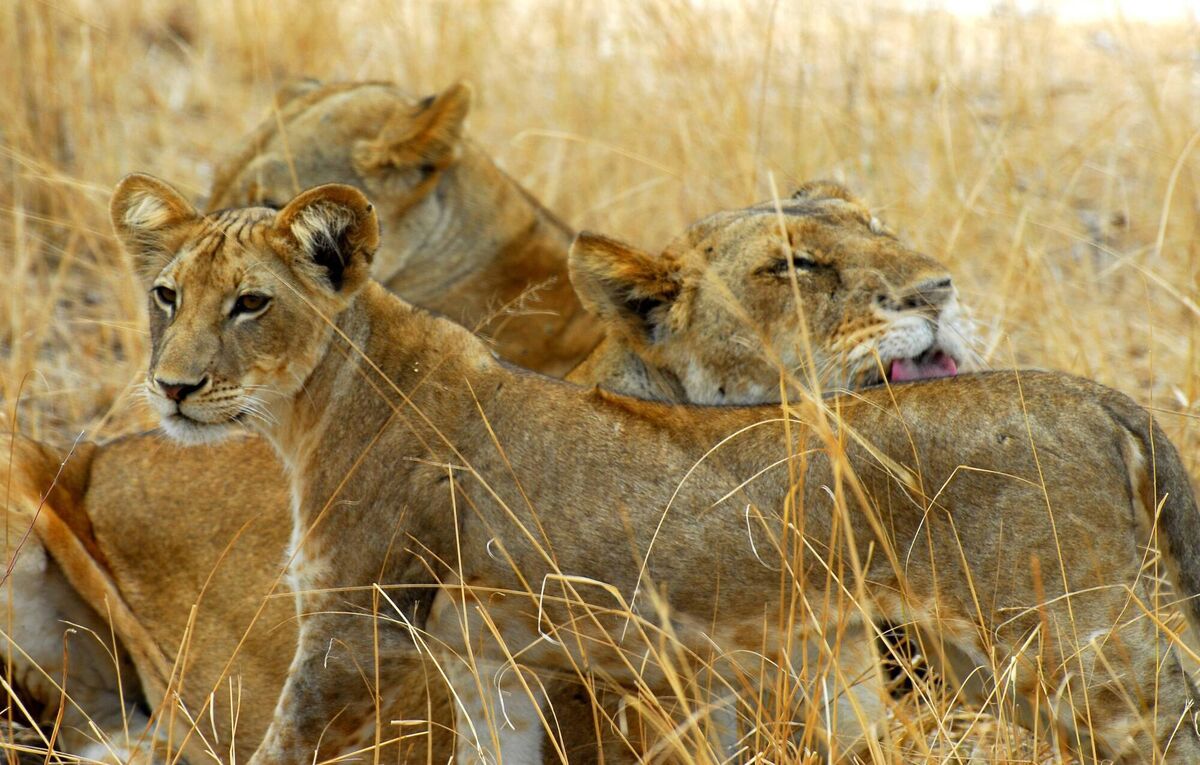Mo Laethanta Saoire: Billy O'Callaghan recalls getting too close to a pride of lions in Africa

Billy O'Callaghan.
Of a July some 20-odd years ago, my brother and I landed in Nairobi, a trip intended as one of those once-in-a-lifetime adventures, hopping between farflung reserves in treacherous, rust-bucket ten seater planes, staying in on-site hotel cabins, waking to the sounds of elephants trumpeting the night away and the songs of a thousand bird species so loud and strange that you could almost hear their colours in the music.
My brother, whose appetite for road was voracious, had planned it all in intricate detail, seeking out reserves that would offer the fullest variation on our first foray into Africa: Amboseli, to the south, close to the Tanzanian border, boasting (if you were fortunate enough to catch a break in the cloud) the most breathtaking views of Kilmanjaro; Samburu, the spectacular dry region north of Nairobi, as far removed from civilization as it felt possible to be; and finally, to Nairobi’s west, again pressing the border, this time onto Tanzania’s Serengeti plains, the Maasai Mara.
Derek Walcott once wrote: “The perpetual ideal is astonishment.” That sums up Kenya. Everything thrilled. Walking along the street in Nairobi our first day in the country, we passed, on the side of the road, a giant snail, like something out of Gulliver’s Travels. It was just the beginning.
The first couple of days, it rained. Not like rain we get in Cork; this was lightning that screamed within the thundercracks, deluges that sank dirt roads clear down to their bedrock. Being in the sky in that, on planes that felt as flimsy as kites, and then landing in shuddering bounces in the absolute middle of nowhere and clearing the gravel runways of scattering gazelles and warthogs, accounted for some of the most exciting/terrifying moments my heart has ever known. Up to then, anyway.
The safari jeeps set out at dawn, returned mid-morning in time for breakfast and then took another run in late afternoon. In between, was idle time – me in the shade reading Hemingway; my brother, more sun-friendly, chasing a bit of colour when he wasn’t lazily taunting the baboons that roamed the grounds between the hotel cabins.
By our second-last day, we’d already been out 10 times across the different reserves and had seen all there was to see: herds of magnificent elephants, cheetahs in full flight, hippos, rhinos, wildebeest and giraffes. But lions, apart from the most fleeting glimpses, had proven scarce. That morning, though, we finally managed to get within touching distance of one who’d just made a kill, a zebra that he’d torn open and was content to let stew in the sun while he enjoyed a well-earned forty winks.
You stand in the jeep and take pictures; there’s room for three at the back and three more in the centre. Onboard that day with us, and Sam, our local guide and driver cursed with a sweaty, permanently panic-stricken smile, were a pair of young Australian newlyweds, and an elderly Japanese couple, frail as kittens but armed with huge, expensive-looking cameras.
Getting to see a creature of such ferocious majesty that close, and in his natural habitat, was breathtaking, and then all too suddenly terrifying, when my brother, standing behind the rest of us, clapped his hands as loudly as he could, bringing the enormous beast leaping to his feet in an instant and letting out such a roar, a slow-building sound of utmost rage that seemed to come up from out of the very ground, that Sam was still screaming even after he’d got the jeep in gear and had put a good couple of hundred yards of distance between us and all those enormous teeth.

My brother’s response to the angry mob was a shrug. Not in the least bit put out, he casually explained that he’d just roused the lion for the cameras because photographing one asleep simply wasn’t the same.
It rained through lunch. By the time we set out again on our last safari, the air had cleared but the sky was still heavy. Leaving the main track was strictly prohibited, but when word came through on the radio of lions sighted in an area we hadn’t yet been, and perhaps wishing for a repeat of the morning’s adrenaline rush, we persuaded Sam, with what loose change we had in our pockets, to risk it.
Ten minutes later we left the road and pulled down into a hollow. The jeep stopped some 20 yards from a great sitting lion and roughly the same distance, to our right, from a second.
Again we took our pictures, looked on in awe and tried to register in our minds just how fortunate we were to be there, in that place, at that
moment.
And then it was time to leave. Sam put the jeep in gear and eased into the accelerator. The wheels spun but we didn’t move. Again, he tried; again the wheels churned up fountains of mud. Because we’d dropped down behind a hill, the radio couldn’t make a signal, and his desperate pleas for help were met with only an unbroken hail of static.
Every spin drove us deeper into the mud – the late morning’s rain had held in the hollow, and we were stuck. And away to our right, the second lion lifted his huge head and seemed – I know how this sounds, but I swear it’s what I saw – to smile. “Oh, good God!” Sam said, his voice shrill, and he began to cry.
With the light draining fast from the day we had no option but to get out and push. While the women remained onboard, and Sam, sobbing hard, stayed behind the wheel awaiting instructions, we did what we could. In less than a minute, covered in mud from the churning wheels, we knew our efforts were futile.
Still, we tried, venturing a few paces from the jeep in search of rocks, wood, anything that might be wedged beneath the tires to give us traction. We made do with bones, the skulls and shattered pieces of what we hoped had been gazelles or warthogs.
I felt certain that this was it for me. I thought about my family and felt terribly sad that I wouldn’t see them again. “You know,” my brother said, keeping his voice to a confidential murmur. “The road’s only a mile or two away.”
I looked at him like he was mad. He shrugged. “I mean, we’d only have to run faster than the Japanese.”
As calmly as I could, I explained that we wouldn’t stand a chance across 200 yards of this ground, much less two miles, and that the old couple would only give the lions a mind for more. We returned to the jeep and waited, as night started to close in.
That we were saved still amazes me. With all hope lost, Sam began to flash the headlights and, somehow, eventually, a passing busload of American tourists caught the light from the road, came down and dragged us free.
But it was only in leaving that hollow that we understood just how close we’d come to the end. The two lions had sat there the entire time, just watching, but none of us had seen the third lion, the one who’d circled around behind us and settled just feet away, ready to pounce.
I still wonder if the poor creatures got to eat at all that night.
- Billy O'Callaghan is a writer from Cork. His latest novel is Life Sentences.


